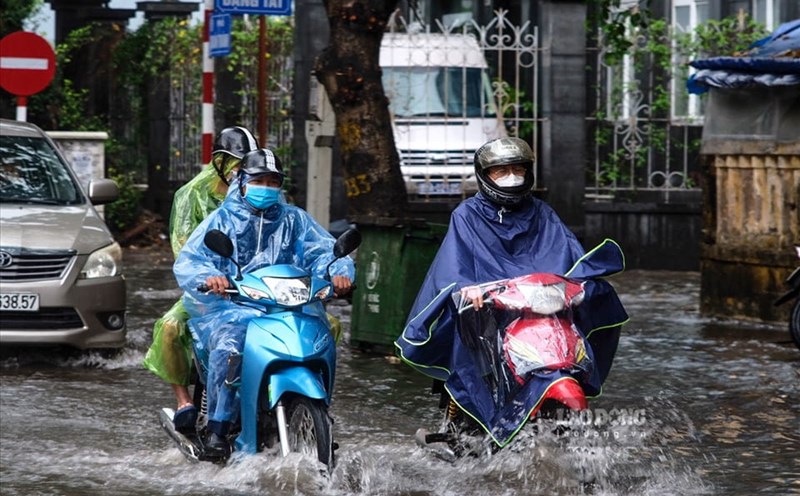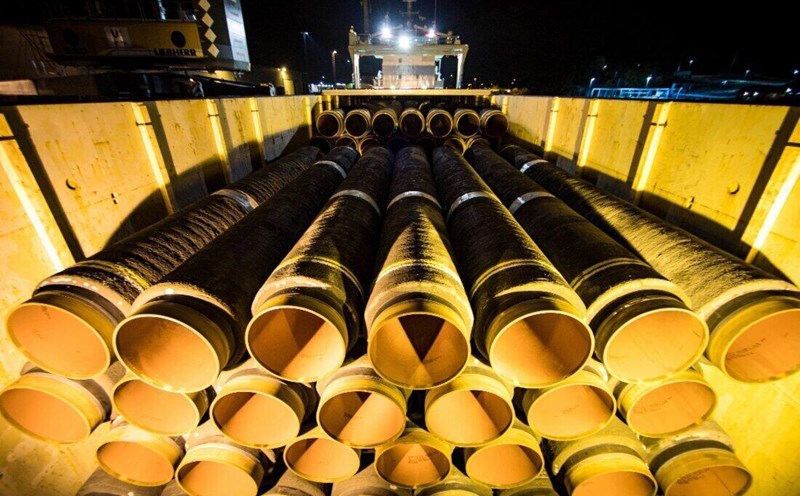Speaking at the National Online Conference to disseminate and implement laws and resolutions passed at the 9th Extraordinary Session, Politburo member and Prime Minister Pham Minh Chinh emphasized that agencies must attach importance to policy communication work; media and press agencies must actively participate more, especially analyzing new and difficult issues, reflecting inadequacies, problems, proposals and opinions of policy implementers.
Improving the quality of journalists
2025 is a year of special significance, celebrating the 100th anniversary of the Vietnam Revolutionary Press; the final year of implementing the Resolution of the 13th National Party Congress, preparing to enter the 14th National Party Congress... The new era is opening up the dreary future of the nation. The new era also poses a new, higher task for revolutionary journalism, requiring journalism to develop commensurately, rise up with the nation, and be worthy of a professional, humane, and modern journalism.
In any period, the role of the State in press management is extremely necessary, however, in the current context, it is not only a " joyness management" but also a "person that creates an environment for press development".
Faced with the wave of digital transformation and pressure from technology platforms, the press faces many challenges in terms of revenue and retention of readers. In the digital age, amending the Press Law to build a suitable legal corridor is inevitable, helping to ensure a transparent and effective working environment for the press, while promoting the overall development of the country. The amendment and supplementation of the Press Law is considered extremely necessary to perfect legal regulations to institutionalize the Party's policies and guidelines on journalism.
When the press faces a series of challenges, from the organizational and operational model to the requirement of comprehensive digital transformation... the amendment of the Press Law is expected to create a strong "push", removing long-standing bottlenecks.
This timely adjustment not only helps complete the legal corridor but also contributes to shaping a modern, dynamic press, in keeping with the development flow of global media.
At the thematic Government meeting on law-making, Politburo member and Prime Minister Pham Minh Chinh emphasized that the amendment of this law needs to closely follow and institutionalize the Party's policies and guidelines on the management and development of press activities; amend and supplement the provisions of the current Press Law to overcome difficulties and inadequacies, ensuring compliance with reality.
The Prime Minister also noted the need to promote the development of the press sector in line with the practical situation, the trend of digital transformation of the press and maintain the nature, promote the role of revolutionary journalism; perfect professional and modern press agencies, play the role of leading and orienting public opinion.
The goal is to build key press agencies and multimedia media to effectively and efficiently serve the interests of the nation and people; improve the quality of journalists and leaders of press agencies; promote digital transformation of the press.
Along with that is to build mechanisms and policies to ensure that press agencies fulfill the missions and political tasks assigned by the Party and the State in information and propaganda work, protecting the Party's ideological foundation.
At the same time, encourage and create conditions for press agencies to increase their potential and facilities, have more legitimate and legal sources of income for press agencies and press workers; timely and appropriate rewards and discipline.
AI application is no longer an option, but a vital condition
At the recent workshop on perfecting laws for press development in the digital age, Deputy Head of the Central Propaganda and Mass Mobilization Department Phan Xuan Thuy emphasized that amending the Press Law is extremely necessary to perfect legal regulations to institutionalize the Party's policies and guidelines on journalism; overcome limitations and inadequacies in current press law regulations.
The amendment of the Press Law aims to adjust and manage press activities appropriately in the context of the strong and rapid development of modern science, technology and media. At the same time, it creates a legal corridor for press activities to develop in the digital age.
Talking to Lao Dong, Vice Chairman of the National Assembly's Committee on Culture and Society Ta Van Ha hopes that the courage and will of journalists can guide and guide public opinion, promptly criticize false arguments. But at the same time, journalism also needs to be given favorable conditions in all aspects, to be able to make a living by the profession; it is necessary to create a solid legal corridor for journalism to develop more and more, becoming a useful and indispensable spiritual food in daily life.
First of all, it is necessary to soon amend and supplement the Press Law to update with the reality of digital transformation, especially new models such as data journalism, mobile journalism, multi-platform journalism, the issue of collecting fees for digital content, press governance models, etc. At the same time, there should be clear regulations on press economic activities, creating a legal basis for press agencies to deploy ancillary services in a transparent and legal manner.
According to the delegate, the State needs to have financial incentives for newsrooms to invest in digital transformation, develop digital content or build subscription platforms. The establishment of a Press Innovation Support Fund is very necessary to support projects testing new technologies, new products, and new organizational models.
The delegate also emphasized that the press must master technology. The application of artificial intelligence (AI), Big Data or automation is no longer a choice, but a vital condition. Technology helps to better understand readers, thereby personalizing content, optimizing distribution, and improving communication efficiency. Many modern publishing houses have switched to a convergence model, integrating multi-platform production from print, electronic, video, social networks to podcasts in a single system.
According to the National Assembly delegate, no matter where the incident occurred, or at any time, journalists were committed, immediately present at the scene to record, reflect, and describe very meticulously and accurately the situation. Journalists are truly in harmony in the breath and the beat of life. That further increases the spread of information to the highest level. Not only simply reflecting, the emotions of the occult journalists in each article have contributed to spreading not only to National Assembly deputies, but also touching the hearts of voters, people and in the whole society.











